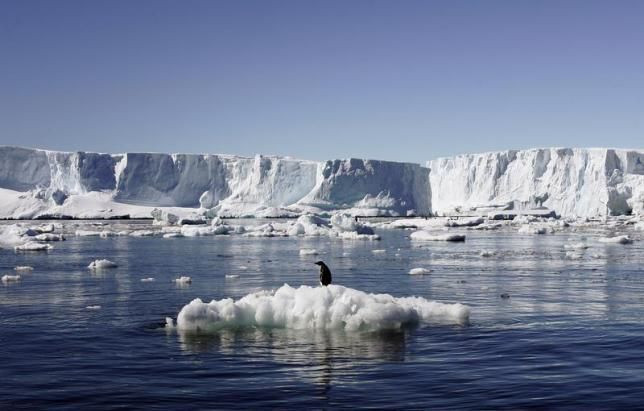Huge icebergs pull CO2 from the atmosphere, slowing down climate change

Giant melting icebergs could actually be slowing down global warming, according to scientists. A new research from the University of Sheffield’s Department of Geography discovered that meltwater from the icebergs contains nutrients that support the growth of phytoplankton, which absorbs carbon dioxide and helps slow global warming.
The study involved examining 175 satellite images of ocean colour in the Southern Ocean, which accurately indicates phytoplankton productivity at the ocean’s surface. The researchers found enhanced chlorophyll levels over at least four to 10 times the iceberg’s length. The icebergs actually contain iron that flows into the iron-poor Southern Ocean if the ice melted.
Iron is conducive to the growth of the tiny marine organisms, which pulls CO2 out of the air from the ocean surface. Phytoplankton fall to the bottom of the ocean once they die, bringing the carbon dioxide with them.
Lead scientist Grant Bigg says that this new analysis shows that giant icebergs may play a major role in the Southern Ocean carbon cycle. In other words, the icebergs fertilise key parts of the ocean with iron to enhance photosynthesis and store carbon.
“The evidence suggests that assuming carbon export increases by a factor of five-10 over the area of influence and up to a fifth of the Southern Ocean’s downward carbon flux originates with giant iceberg fertilisation,” Brigg added in a press release. “If giant iceberg calving increases this century as expected, this negative feedback on the carbon cycle may become more important than we previously thought.”
Still, this won’t stop global warming completely, the researchers assert. This only stands as a secondary negative feedback on climate change.
Global warming accelerates the melting of glaciers, consequently increasing ocean sea levels, as reported by IBT AU. Antarctic ice shelves are also melting faster than expected.
Experts agree that that the rates of ice shelf loss are unsustainable and have the potential to cause a major collapse. Nevertheless, the new research shows the complexity and unpredictability of the effects of global warming.





















